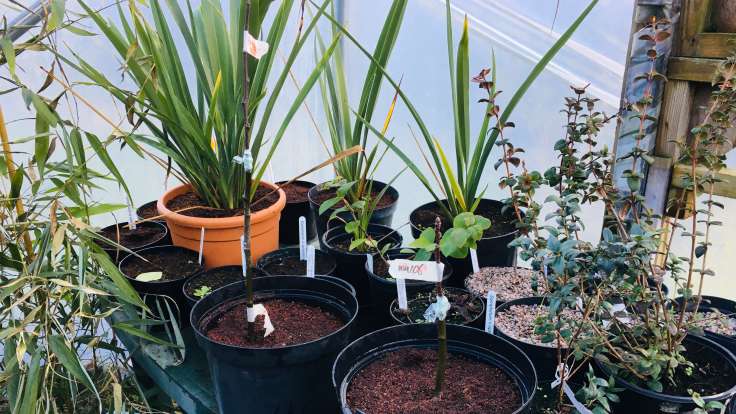
My first ever grafting experiments, a Bubblegum Tree and an Ashmead’s Kernel
These are my rough and ready notes from the grafting workshop for my personal consumption.
- Discussion about pollinator friendly flowers. Botanic Garden Wales research on top flowers for pollination, link to blurry slide from slideshow by @abigailjayne26. Also see Top 10 spring flowers foraged by honey bees for nectar and pollen
- Excellent fruit tree reference OrangePippin.com
- My rootstock reference
- M116, recently developed, good disease resistance, harder to propagate, not readly available.
- Can propagate rootstock by hardwood cuttings.
- Triploid apple trees require specific diploid pollinating partners “You will need either one self-fertile apple variety (or crab-apple) or two other varieties which can cross-pollinate each other as well as the triploid variety.” Quote from Triploid apple varieties.
- Crab-apple in a hedge if you don’t have room. Can graft crab-apple on suitable rootstock.
- M116 relatively new rootstock, better disease resistance, harder to come by.
- P22 rootstock, very dwarf. Can use as a test rootstock, for trying out different varieties and also for creating scions. Also, can use for crab-apple pollinator if limited space and want to grow triploid apple tree.
- “The only way to do this is to start”! Fantastic advice from Steve :)
- Recommended, Felco budding knife, about £15 inc. delivery.
- Recommended rootstock supplier, Sheepwalk Nursery, 07854 106 930, sheepwalknurseries@yahoo.co.uk
- Calendar
- Dec/Jan Take scion cuttings from 1st year growth, keep in fridge in plastic bag
- Feb end of, Whip & Tongue grafting
- Mar→ for cleft graft
- The order of grafting
0. Wrap rootstock roots in rag and inner tube tie
- Cut scion, then match with cut on rootstock
- Cut notch on both
- Grafting tape & vaseline
- Put in a pot for 1 year
- Support join with bamboo cane
- Remove tape when new stem grows
- Rough sketch of process